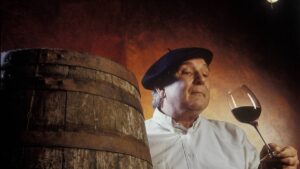Why innovation and creativity reign supreme during challenging times

Getty Images
The coronavirus pandemic of 2020 has launched us into an uncertain world, one we never imagined.
Our usual ways of communicating, socialising and celebrating have changed entirely, forcing us all to adapt to different routines and formats while creating the need and space for self-reflection.
As COVID-19 has given us the opportunity to take a step back from the hustle and bustle of daily life and focus our energy on what is considerably more important to us during a challenging time, such as our family and loved ones, a number of our scholars have demonstrated that adversity drives the inspiration for creative innovation.
As Plato’s Republic so aptly put it, “Necessity is the mother of invention”. That necessity is upon us now.
In so many ways we simply weren’t ready or equipped for a global lockdown. It is a new reality few of us would have considered imagining.
But history shows us that in times of isolation and self-reflection, creativity and innovation can surge. Examples of this ingenuity are writ large among our Foundation scholars.
Leading the way
The pandemic, albeit driving a definite shift towards a ‘new normal’ we are still growing accustomed to, has encouraged and inspired several of our talented scholars to pioneer incredible projects and provide insights and wisdom, further paving the way for Australia’s and the world’s futures.
Dr Harrison Steel, our 2016 Roden Cutler NSW John Monash Scholar is currently working on the frontline of the pandemic at London’s Oxford University as part of a team of scientists working to develop a rapid testing method for COVID-19.
This team is also developing a unique ventilator made from off-the-shelf parts that can be quickly assembled in small laboratories or workshops amid the coronavirus shortage.
Public health lawyer and pandemic expert Dr Alexandra Phelan (2013 Pratt Foundation John Monash Scholar) has been actively sharing insights on COVID-19, becoming one of the most trusted sources as a global health policy and law expert in the digital age of misinformation.
Alexandra has been named as one of the top health experts on Twitter in a list compiled by leading health and science journalist Melody Schreiber.
Dr Samuel Wills, a 2010 scholar and economist has been able to utilise his economics expertise and apply it to a new working paper that proposes a way out of the COVID-19 lockdown.
The paper reveals economies can be put back to work while keeping cases falling by using “Stratified Periodic Testing”, which involves testing everyone in at-risk groups at regular intervals, upwards of once every few days.
Dr Laura Diment (2015 Australian Universities’ John Monash Scholar) is currently a postdoctoral researcher at the University of Southampton, specialising in digital technology and prostheses and has now joined an exceptional team of researchers at the university.
The team has created an open-source air-purifying respirator to be used by frontline health workers in danger of exposure to COVID-19.
The prototype personal respirator, called PeRSO, is made from readily available materials, delivers clean air with a battery-powered fan pack and High Efficiency Particulate Air (HEPA) filter.
Following its success and growing interest with manufacturing partners, the team is now looking to support low-resourced countries so they can manufacture their own respirators to meet the global shortage of personal protective equipment.
Musical creativity
Michael Grebla — the 2016 Zelman Cowen John Monash Scholar, mechanical engineer turned award winning international composer currently based in Manhattan, New York — has let his creativity and composition flourish during the current lockdown.
While the global music industry has been brutally impacted by the pandemic, Michael has been using this time to his advantage by creating new pieces of music, writing a series of works entitled ‘music in isolation’, for solo performers to be broadcast internationally through various platforms.
While it is clear that the worldwide pandemic presents new challenges and opportunities for innovation from our scholars, the importance of harnessing creativity during a difficult time isn’t only about the work of our outstanding scholars.
Through our scholarship community we have seen that there has always been a need for virtual support and connections to keep the spirit of our alumni alive.
Fortunately, many of these virtual functionalities and processes were already put in place prior to the coronavirus crisis, with many of our scholars studying and living abroad.
The support across the alumni community has also been paramount, with social events still taking place via technology, instead of being cancelled or postponed.
Scholars in shared regions on the East and West Coast of the US, the UK and Europe, have set up regular ‘quarantini’ or ‘cuppa’ sessions, sharing stories and providing friendship and emotional support for each other while having fun.
We place a high value on our scholars and alumni being able to connect with each other and stay innovative with support, despite the challenges that social distancing presents.
In addition to social events, Laura Grant (2011 Scholar) is facilitating wellbeing workshops to sanity check our scholars and help them navigate their way through this ‘peculiar’ time.
The impact varies for everyone and the frustrations include social isolation as well as not being able to keep the flow of lab research and field work.
Even though our scholar community isn’t currently able to meet face to face, it’s been wonderful to see them creatively work around restrictions maintain and build connectedness.
John Monash scholars are always impressive, but they have proven their instinctive motivation in their responses to the urgency of the pandemic environment.
COVID-19 has given rise to a platform on which they are demonstrating how capable and nimble they are, exemplifying leadership with their creative and innovative problem solving.
They are fulfilling the philosophy and values of General Sir John Monash who said, “equip yourselves for life, not solely for your own benefit but for the benefit of the whole community”.
Annemarie Rolls is the CEO of the General Sir John Monash Foundation
UNLOCK INSIGHTS
Discover the untold stories of emerging ASX stocks.
Daily news and expert analysis, it's free to subscribe.
By proceeding, you confirm you understand that we handle personal information in accordance with our Privacy Policy.








